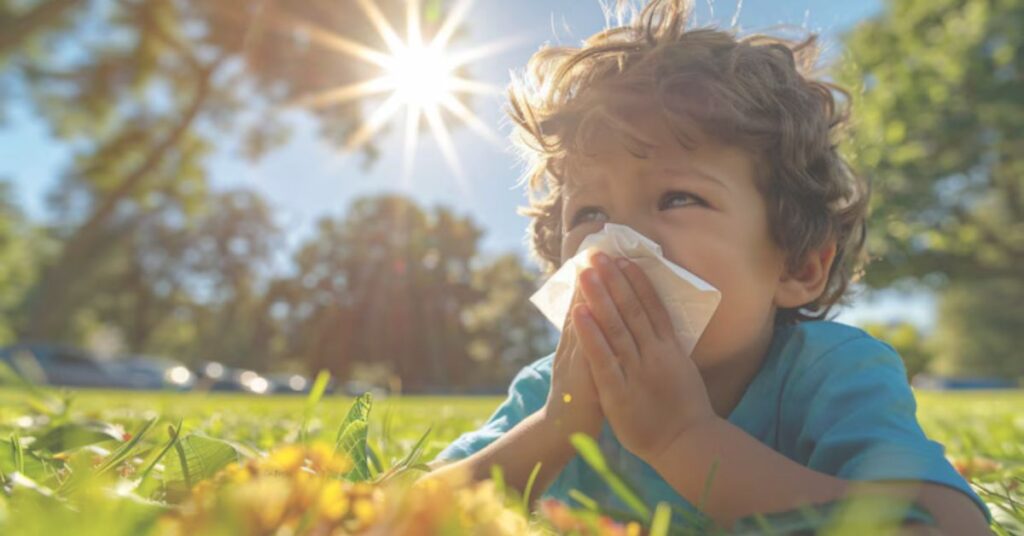Summer brings warmth, brighter days, and a more active environment, but for newborns and infants, it also opens the door to increased health risks. Due to their developing immune systems, babies are particularly vulnerable to various seasonal illnesses. The rise in temperature, sweating, and exposure to allergens and germs can cause a range of summer infections in babies, often leaving parents overwhelmed.
This blog explores the most common summer infections in babies and offers practical, actionable steps for preventing infections in newborns during hot and humid months.
Why Are Babies at Greater Risk in Summer?
Understanding the vulnerability of babies during summer is crucial for better care and prevention. Here’s why summer becomes challenging for infant health:
- Immature Immune System: Babies cannot effectively fight off bacteria and viruses as adults can.
- Excessive Sweating: Leads to skin irritation, blocked pores, and bacterial or fungal growth.
- High Humidity: Increases the risk of skin infections and fungal rashes.
- Contaminated Environment: Food, water, and surfaces may be breeding grounds for harmful microbes in summer.
- Greater Exposure: Thin clothing and outings expose babies to allergens, insect bites, and pollutants.
Common Summer Infections in Babies
1. Prickly Heat (Miliaria)
One of the most visible summer infections in babies, prickly heat appears as tiny red bumps on the baby’s skin—most commonly on the neck, back, and thighs. It is caused by blocked sweat glands due to excessive heat and tight clothing.
Symptoms:
- Small red or pink rashes
- Irritability due to itching
- More visible in skin folds or areas with poor ventilation
2. Fungal Infections
Warm and moist areas, especially in skin folds, create a perfect environment for fungal infections like candidiasis or ringworm. These skin infections in summer are particularly common in the diaper area, underarms, neck, and groin.
Symptoms:
- Red, inflamed patches
- White scaling or flaky skin
- Foul odor in infected regions
3. Diarrhea and Gastrointestinal Infections
In summer, bacteria multiply quickly in food and water. This makes babies highly susceptible to stomach infections.
Symptoms:
- Loose or watery stools
- Vomiting
- Fever and dehydration
- Poor appetite
4. Eye Infections (Conjunctivitis)
Red and watery eyes with sticky discharge may be signs of conjunctivitis, a highly contagious eye condition often aggravated by summer dust and allergens.
Symptoms:
- Redness and swelling in the eyes
- Continuous tearing or discharge
- Baby frequently rubbing eyes
5. Mosquito-Borne Infections
Summer months increase mosquito breeding, leading to serious summer infections in babies like dengue, malaria, and chikungunya.
Symptoms:
- Sudden high fever
- Rash or skin irritation
- Unusual sleepiness
- Swelling in joints (especially in older infants)
6. Respiratory Infections
Babies exposed to allergens, pollution, or cold air from fans and air conditioners may suffer from respiratory issues.
Symptoms:
- Nasal congestion
- Coughing and sneezing
- Breathing difficulty
- Fussiness or irritability
Preventing Infections in Newborns During Summer
Ensuring proper baby care in summer is the key to preventing these infections. Below are practical tips for protecting your baby from common summer-related illnesses.
1. Maintain Hygiene
- Bathe your baby daily or sponge clean during extreme heat.
- Use a mild, pH-balanced soap for newborns.
- Keep skin folds dry to prevent fungal growth.
- Regularly wash hands before handling the baby or feeding.
2. Use Appropriate Clothing
- Dress your baby in soft, breathable cotton clothes.
- Avoid tight or layered clothing.
- Ensure the diaper area is well ventilated and change diapers frequently.
- Use cloth nappies at home to reduce rashes.
3. Protect from Mosquitoes
- Use mosquito nets and baby-safe repellents.
- Install window screens to prevent mosquito entry.
- Dress your baby in full-sleeved but breathable clothing during peak mosquito hours (early morning and dusk).
4. Maintain Clean Feeding Habits
- Sterilize bottles, nipples, and spoons after every use.
- Avoid feeding uncovered or stored food.
- If breastfeeding, maintain the mother’s hydration and hygiene.
5. Ensure Safe Indoor Cooling
- Avoid direct air flow from AC or fans onto the baby.
- Maintain room temperature around 25–27°C.
- Use a humidifier if the air becomes too dry.
6. Keep Baby Hydrated
- Increase breastfeeding sessions in summer to prevent dehydration.
- Consult your pediatrician before giving any fluids other than breast milk or formula.
- Watch for signs of dehydration: sunken eyes, dry lips, less urination.
When to See a Pediatrician
Even with preventive care, babies may occasionally fall ill during summer. It is critical to recognize when medical attention is required.
Contact your pediatrician immediately if:
- The baby has a fever above 100.4°F (38°C)
- Vomiting or diarrhea continues for more than 24 hours
- Rash spreads rapidly or oozes
- Baby refuses to feed or appears drowsy
- Eyes become red with discharge
- Any sign of mosquito bite followed by fever appears
Conclusion
Summer infections in babies are preventable with the right care, hygiene, and environment management. Staying informed about the symptoms and early signs of illness, while maintaining good hygiene and using protective measures, can go a long way in ensuring your baby enjoys a healthy summer season.
Every parent wants to provide the best protection to their baby. Preventing infections in newborns during summer is one of the most important responsibilities during the first year of life. With careful observation and timely action, you can ensure your baby’s well-being even in the harshest months.
If your baby shows any signs of discomfort, unusual rashes, or symptoms of a summer infection, do not delay.Visit the Pediatric Newborn Clinic, Greater Noida West – where expert pediatricians are committed to ensuring your baby’s health and happiness through every season.



